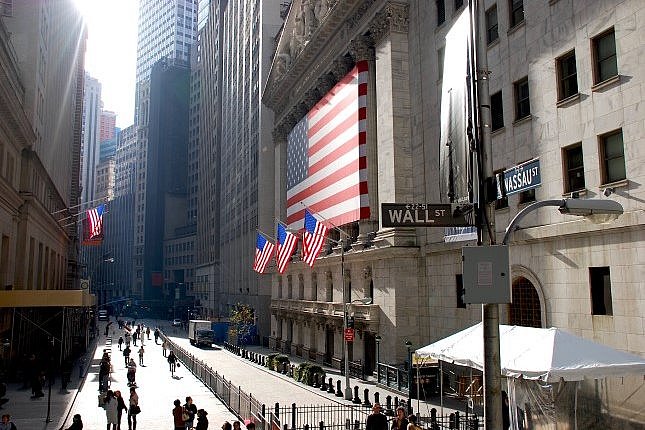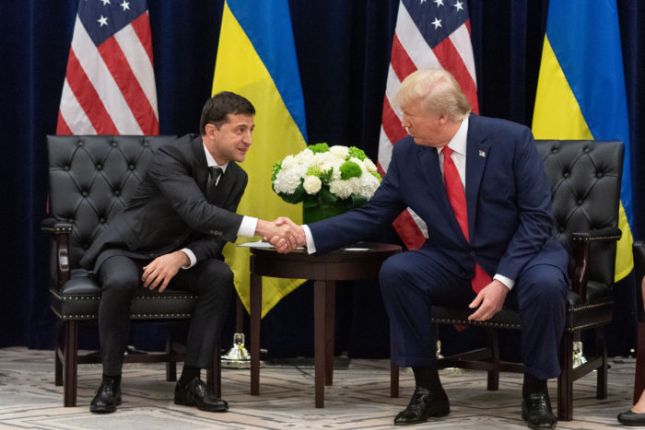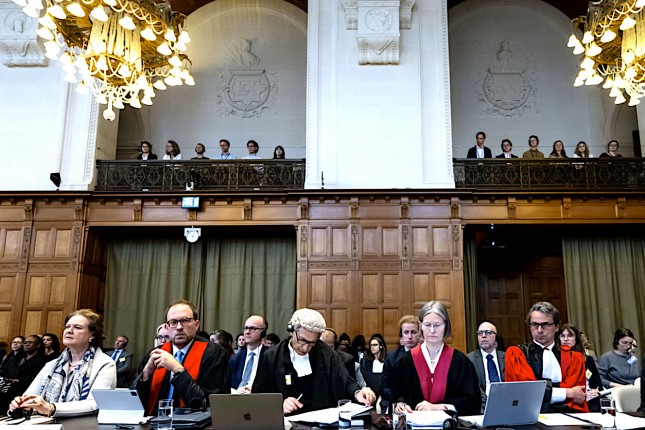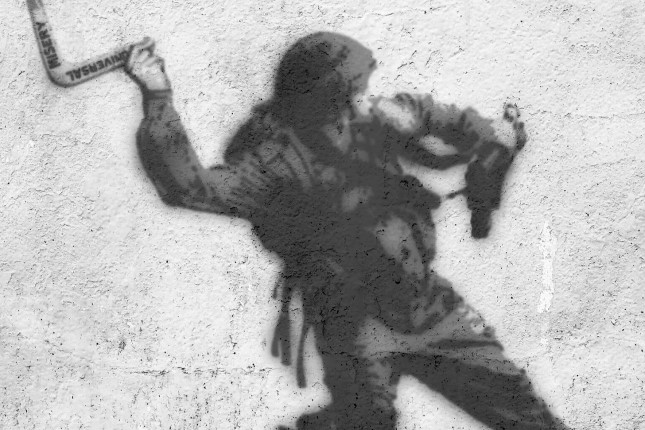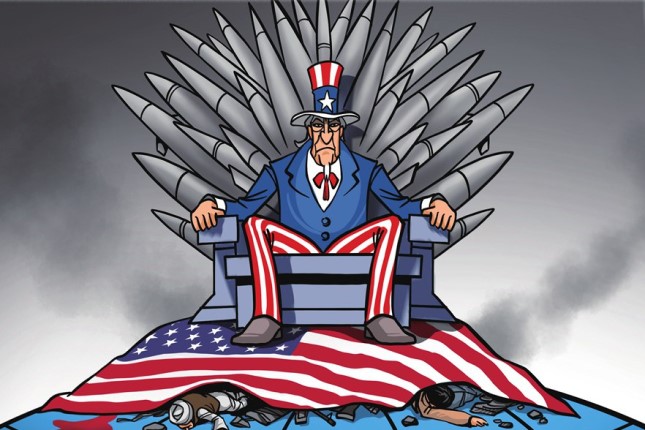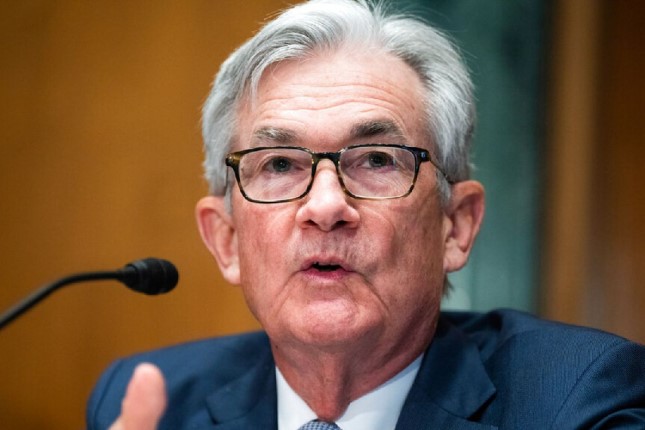The economic pundits are freaking out again. A new poll finds that a majority of Americans think the economy is declining, when it is actually growing. Half of us believe the stock market is crashing, when it is reaching new highs. Half of us also believe unemployment is at a disastrous 50-year high, when it is sustaining record lows.
Why are we Americans so stupid? Why are we so blind to a healthy economy? It’s all in our messed-up heads, we are told. We are bringing bad vibes to the good times, they say.
Lee Drutman, in his Substack, wonders if our brains are hard-wired to be ever alert to threats, more than to good news. Perhaps social media has learned how to get more clicks by focusing on threat after threat, even imaginary ones.
Paul Krugman, who has been chirping on the “vibecession” for nearly two years, believes it relates to the polarization of American politics, also amplified by social media. The Republicans stir the pot by mindlessly attacking anything and everything Democrats do, he argues. All of this gets our animal juices flowing so that we reflexively see bad, bad, bad.
I think these very savvy analysts are looking for love in all the wrong places. They are ignoring a key long-term trend: Fewer and fewer people trust the government. And probably even fewer believe what government-friendly analysts write. The bond between citizens and government was smashed long before Donald Trump and Marjorie Taylor Greene came onto the scene.
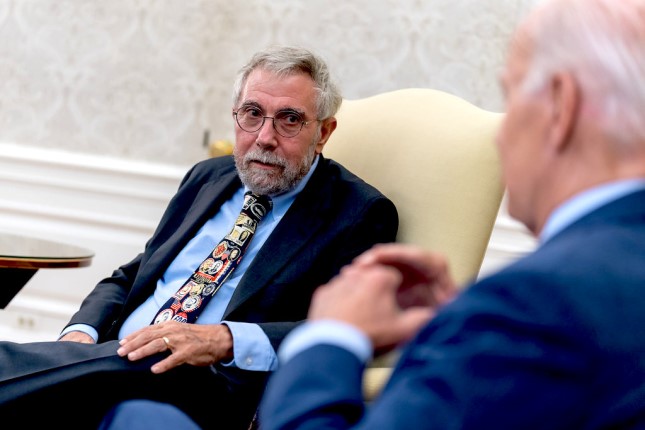
Krugman in 2023, during a meeting with President Joe Biden. Photo: White House / Adam Schultz.
When President Lyndon Johnson won in a landslide victory over Barry Goldwater in 1964, a colossal 77 percent of Americans had trust in the federal government.
The government had earned it through the battle against the crippling economic depression in the 1930s, the fight against fascism during WWII, and its stewardship over a prospering economy in the 1950s, when the gap between the rich and the rest of us reached historic lows.
Black Americans also saw the federal government as an ally in breaking Jim Crow in the South. And labor unions, which then represented more than 30 percent of the workforce, believed they had formed a permanent national partnership with government and corporations to improve the standard of living of all working people.
Government, in 1964, was viewed as a force for good.
What happened?
The federal government blew it. The best and the brightest in the Kennedy and Johnson administrations led the country into the Vietnam War and repeatedly lied to the nation about its progress.
In 1960 there were 900 American troops stationed in South Vietnam to prop up an unpopular government. By 1968 there were more than 500,000, and U.S. generals wanted to double that number.
More and more Americans started to believe that it was not possible, or moral, to use military might to interfere with Vietnam’s struggle for independence, even if the revolt was led by communists. Whatever your view of the war in Vietnam, there is no doubt that it tore our country apart.
Johnson, who had pushed through historic civil rights legislation, as well as launching the Medicare and Medicaid programs, became a hated figure, especially in the eyes of young people subject to the military draft.
Yet even in 1968, when Robert F. Kennedy and Martin Luther King Jr. were assassinated and troops were sent to put down riots in urban areas, a remarkable 62 percent of the country still approved of the federal government. The public may have wanted new leadership, but the government itself was still viewed positively.
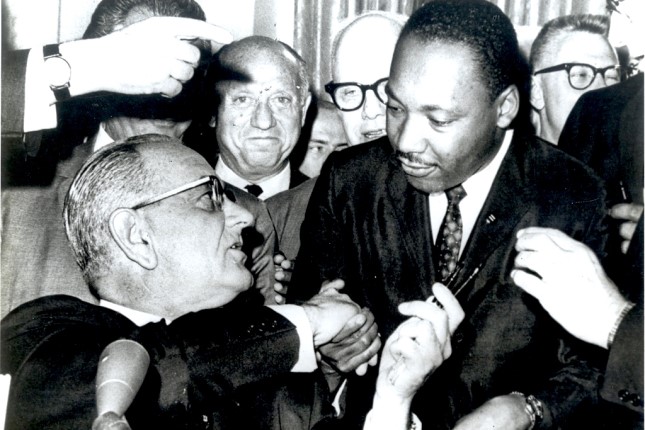
Johnson handing King one of the pens used in signing the Civil Rights Act of July 2, 1964, at the White House. Photo: U.S. Embassy New Delh / Flickr / CC BY-ND 2.0 / Library of Congress Prints & Photographs Division.
The Vietnam War, however, continued for another seven years and ended in abject failure, further alienating millions of Americans, especially young people. And then came Watergate.
Journalistic and congressional inquiry revealed that President Richard Nixon and his key advisers were involved in a vast array of crimes and coverups of their interference in the rights of their political opponents, especially Vietnam War critics.
By the time Nixon resigned from office in 1974, government approval had fallen to 36 percent. At that point the leaders and the entire federal apparatus seemed untrustworthy to most of us.
Ronald Reagan, with his optimistic “Morning in America” nudged up government approval rates to 46 percent in 1985. But ironically, and tragically, he did so by attacking government itself.
In 1986, while running for a second term, he said at a press conference, “the nine most terrifying words in the English language are: I’m from the Government, and I’m here to help.”
Think about that for a moment. The president of the United States, near the peak of his popularity, was telling us that the government he is running stinks!
Gone was the 1930s understanding that government was needed to protect the people from corporate power. Gone was the idea that in hard times government should put people to work. Gone was the idea that Wall Street needed strict regulations.
By the 1990s, policy leaders of both parties believed that whatever government could do, the private sector could do better. Bill Clinton put it more artfully in his 1996 State of the Union Address: “The era of big government is over.” Little wonder that trust in government fell to about 30 percent that year.
To make matters worse, starting with Reagan and accelerating during the Clinton years, financial deregulation became all the rage. “Greed is good” wasn’t just a joke from a movie, it was the dominant governmental theory of economic growth.
Money gushed upwards to the rich through stock buybacks, anti-worker trade deals and leveraged buyouts. Workers paid the price with their jobs. Mass layoffs, previously a rarity in non-recessionary periods, became routine, and the government did absolutely nothing to stop them. (For a fuller analysis please see Wall Street’s War on Workers.)
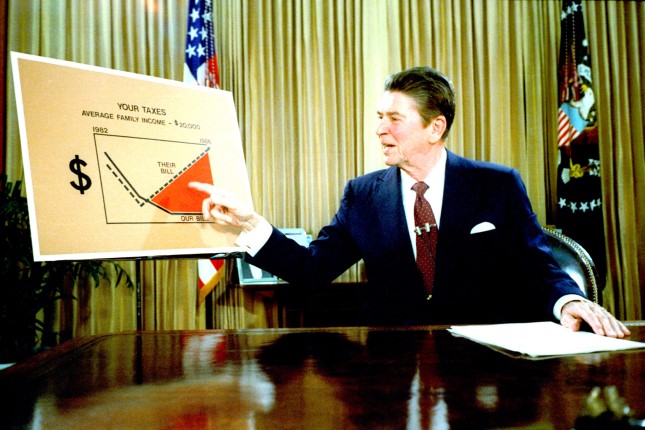
Reagan outlining plan for cutting taxes in a televised address in July 1981. Photo: Reagan White House Photographs / Wikimedia Commons / Public domain.
After two decades of Wall Street plunder the financial system collapsed in 2008, leading to a loss of 6 million jobs in a matter of months. Government got another black eye when the financial barons who so obviously crashed the system weren’t prosecuted and didn’t lose their jobs.
Instead, nearly all their institutions were bailed out and astronomical executive pay packages continued. And the homeowner victims of the crash got nothing.
It sure seemed like the federal government and Wall Street were partners in crime. Little wonder that public trust in government crashed to less than 20 percent, and it hasn’t changed much since. The last poll (June 6, 2023) comes in at a pathetic 16 percent.
Economists who keep harping about all the great governmental accomplishments are not trusted precisely because most Americans, except those at the top, are suffering.
Inflation is reducing our real wages even if we can’t accurately tell pollsters about how the stock market is doing. Mass layoffs are unrelenting, even if we don’t know unemployment trends. (See the rigorous work by Thomas Ferguson and Servass Storm for more on this.)
The biggest problem, so often ignored by vibecession pundits, is how to take the government back from the wealthy who dominate it.
Politicians who tap into our distrust with “drain the swamp” are pulling a fast one. They only want to place their own cronies in positions of governmental power to further extract wealth from working people.
It’s not a pretty picture. Expecting the political establishment to reform itself is folly. It takes pressure from a mass movement to force meaningful change.
We saw a glimpse of that power during Occupy Wall Street, when for a few months it seemed as if the political establishment might be successfully pressured to take on financial elites.
But there was no structure to hold that amorphous movement together. Social media, all the rage, was no substitute for concrete organizational structures. Wall Street walked away unscathed.
Today, labor unions are the only organized groups with the resources to stop corporate dominance of politics and government before our cherished democracy is sold to the highest bidder.
Main photo: Wall Street, 2009 © Dave Center / Flickr / CC BY 2.0.
Source: Consortium News.
